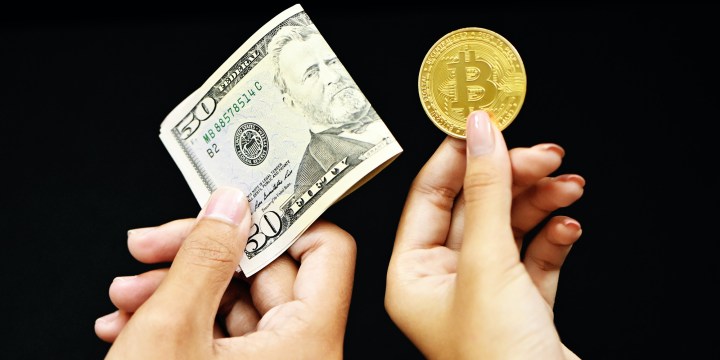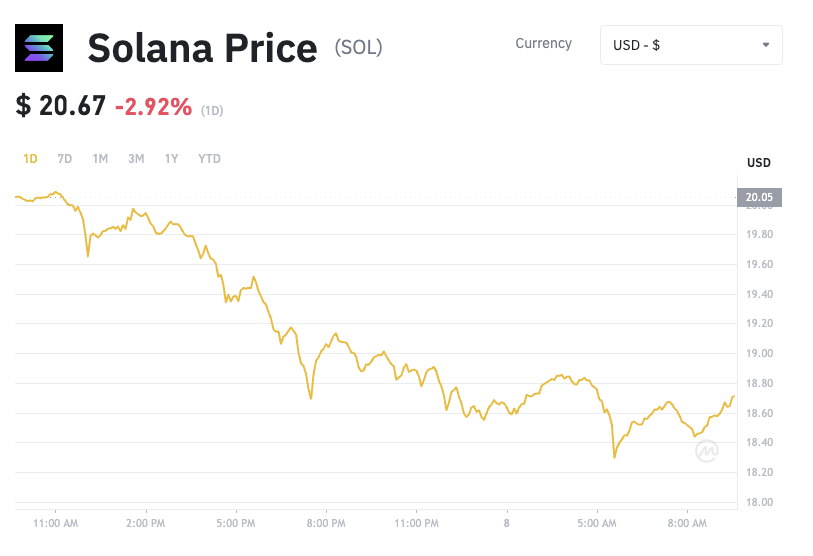BUSINESS REFLECTION
After the Bell: The SEC vs crypto — an explainer

The US Securities and Exchange Commission (SEC) has decided to sue the two biggest remaining cryptocurrency exchanges, Binance and Coinbase. Coinbase is listed in the US and immediately dropped about 15% in response to the news. What does this mean for crypto owners outside of the US and the crypto universe in general?
The first question is: Why is the SEC doing this? The answer is that it is trying to protect investors, which is its job. But the question of whether it should be concerning itself with the crypto industry is extremely complicated and disputed. Both Binance and Coinbase are contesting the charges, so there is a big legal battle looming, and it’s not entirely clear what the outcome will be.
In principle, the SEC, like other market regulators worldwide, requires trading platforms in securities to register. And what you get as an investor when platforms register is a system that consists of three separate things: an exchange, a broker and a clearing house. The exchange matches buy and sell orders, the broker trades on the exchange on behalf of clients, and the clearing house settles the trade.
When you go to a broker and request that he or she should buy 100 Anglo shares, the broker will approach the exchange, bid for shares, and, normally, hold them on your behalf. The clearing house will take your money and hand it over to the seller of the shares, and it makes sure you get the shares. Simple.
The reason it’s important to split the three functions is that you don’t want the exchange, notionally the impartial arbiter of the trading process, to be doing any buying and selling on its own behalf because there is a risk it will trade in its interest and not yours. Those two things might overlap — and they might not. Likewise, you don’t want the exchange, or even the broker, settling the trade for the same reason.
But if you buy crypto from a crypto exchange, they are doing all three of those things. What can go wrong in the process has been very graphically demonstrated, allegedly, by the now-defunct broker FTX. There were other problems too, but FTX was an owner of its own coin, so obviously it wanted the price of that coin to go up and keep going up. (Who doesn’t?)
One way it achieved that was to effectively trade with itself, which is called “wash trading”. The intention here is to create the false impression that there is more liquidity in the market than there actually is, which tends to pump up the price. According to some estimates, about 70% of crypto trading that takes place at the moment is wash trading, which is kinda scary.
The arguments against the SEC are various, but my guess is that the main dispute is that cryptocurrencies are not actually “securities” in the legal sense. This is why the SEC is not actually contesting bitcoin (big relief there!). In fact, only 22 of the top 100 cryptocurrencies are contested by the SEC. Still, there is a lot of value vested in these 22 forms of crypto.
So, why have these 22 cryptos been singled out? The reason has to do with whether or not the crypto concerned is a “security”, as suggested above. The US has a legal definition of what constitutes a “security”, called the “Howey test” and it requires that for an investment to be a security there has to be: 1) an investment of money; 2) in a common enterprise; 3) with the expectation of profits; and 4) that the profits come solely from the efforts of others.
For example, one of the disputed currencies is solana, or SOL as its currency acronym is known. Solana is a blockchain network for decentralised apps run by, you guessed it, Solana Labs. To propose a transaction on the platform, the participating apps have to “stake” some SOL, and a tiny bit of that currency is “burnt” when the transaction is made. SOL was also sold to investors to build the enterprise in the first place.

So investors did invest money in a common enterprise with the expectation of profits. But this is a network of decentralised apps, so it’s possible to argue that SOL is not being bought as an investment but as a way to pay for transactions on the blockchain. SOL, according to this view, is the petrol that fires up the programs that run on the network.
Actually, Bloomberg columnist Matt Levine argues that buying these cryptocurrencies is a bit like buying shares in a tech company. I mean, what’s the difference? There is considerable overlap between the value of the currency and the value of the business. And what is more, the process of “burning” bits of the currency is comparable to a company buying back its own shares.
Anyway, this is what the courts are there for: to decide close questions like this one.
There is of course one funny bit: One of the legal questions will be whether the exchanges themselves suspected that they might be, effectively, illegally running securities exchanges in the US. Did it cross their minds?
The answer to that would be a big fat “yes”. We know this because one Binance CCO emailed a compliance officer in the organisation in December 2018, saying “We are operating as a fking unlicensed securities exchange in the USA, bro.” Well, bro, that is an interesting perspective, and it now turns out that the SEC agrees with you!
So, what will happen now? Well, Coinbase accounts for 53% of crypto spot trading volume in the US, but only 6.5% of global volume. Binance doesn’t operate in the US, although a theoretically separate branch, Binanace.us does. Exchanges around the world will be watching anxiously, but since the big three – Bitcoin, Ethereum and Tether – are not part of the court cases, the international effect will probably be muted in the short term.
But the cases will produce something of a precedent for the world, so they are worth watching. The bigger problem has to do with the veneer of excitement and social acceptability of cryptocurrencies in general, and my guess is that they have taken a hit. Crypto is still a huge phenomenon: there is around $500-billion of bitcoin out there, plus another $300-billion in ethereum and tether, which is about two-thirds the value of all the stocks on the JSE.
But with the value declining, or at least bouncing around, one of the big reasons investors buy them is being undermined. It’s typically at this moment when public support is waning that regulators jump in because the risk of a public outcry is reduced.
And, perhaps more importantly, there is a brand new, shiny, potentially lucrative toy for the tech industry to focus on now called AI, and you can expect it to be grabbing at least some of crypto’s fading limelight. DM




















 Become an Insider
Become an Insider
Comments - Please login in order to comment.